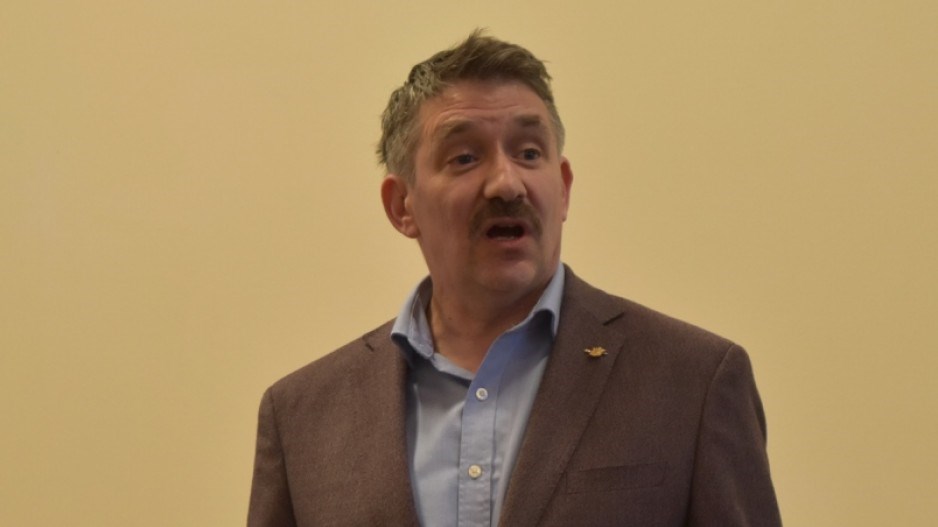People may be divided on whether the foreign buyers tax will help or hinder housing affordability, but Nicholas Simons, MLA for Powell River-Sunshine Coast, still wants it extended to the Sunshine Coast.
Simons confirmed his position at a West Howe Sound Community Association (WHSCA) meeting on March 21.
Two housing taxes from the budget – the foreign buyers tax and speculation tax – were discussed at length at the meeting. Neither extends to the Sunshine Coast.
The foreign buyers tax has increased from 15 to 20 per cent and will apply to residential properties in the Metro Vancouver, Victoria, Nanaimo, Fraser Valley and Central Okanagan regions.
“There’s mixed opinions on should it come to the Coast, should it not. Initially I was like, yeah, it should, and now I see the other side, too,” said Maura Laverty, WHSCA chair, before asking where Simons stands on the issue.
Simons replied: “When I heard the geographic parameters for the foreign buyers tax, I thought … is everybody going to suddenly come to the Sunshine Coast because they don’t have to pay the 20 per cent?”
Simons said he hears mostly positive comments about extending it to the Coast, and told Coast Reporter afterwards, “I’ve talked to [Finance Minister Carole James]. She knows there’s some interest,” and said he expects “it will be up to regional districts to make requests to the province to be included or not.”
He also addressed attendees’ concerns with the speculation tax, which is set to be levied on second homes that aren’t lived in year-round and was originally slated for the same regions as the foreign buyers tax. It stoked controversy because details – such as the potential impact on B.C. residents – hadn’t been ironed out yet.
When an audience member asked about the implications for B.C. residents, Simons responded, “Certain situations people will be exempt… but right now the expectation is that the incentive will be to put properties that were previously empty on the market for rentals.”
Another attendee said, “Not everybody who finds themselves the owner of an empty house is either wealthy or a speculator,” adding that because of family circumstances he is now responsible for a high-value but unlivable house in Victoria.
“Regulations will be based on consultation and your comment will go into that as well,” responded Simons.
Arguing to extend the tax locally, a resident said she was “just appalled” when she read the budget and saw that it included communities on Vancouver Island but not the Sunshine Coast. She linked speculative buying to a lack of affordable housing and poverty on the Coast.
The Monday following the meeting, James provided more details on the speculation tax, including reduced rates for affected B.C. and Canadian property owners and exemptions for Bowen Island, the Gulf Islands, Parksville, Qualicum Beach, Hope, Harrison Hot Springs and other rural communities previously part of the targeted regions. “We have focused the geographic areas so this tax only applies in urban housing markets hardest hit by this crisis,” she said.
Folded into the discussion around housing affordability was the observed upswing in short-term rentals and diminishing options for long-term renters. Simons cited a Sunshine Coast Regional District report that found those with short-term rentals aren’t interested in making the switch to long-term renters, in part because of the perception of trouble tenants. He added, “About half the people complain about the residential tenancy laws because it protects the tenant and the other half says it protects the landlord. So we have to find a balance.”
Attendees also noted that short-term rentals have become crucial income-generating tools for homeowners. “It is middle income families making it only because of that,” Laverty said.
The Burnco aggregate mine, food security, poverty reduction and ferries were also candidly discussed at the meeting. “Seven months in, it takes awhile to turn the ship around,” said Simons near the end of his talk. “I expect people to hold us to account.”




